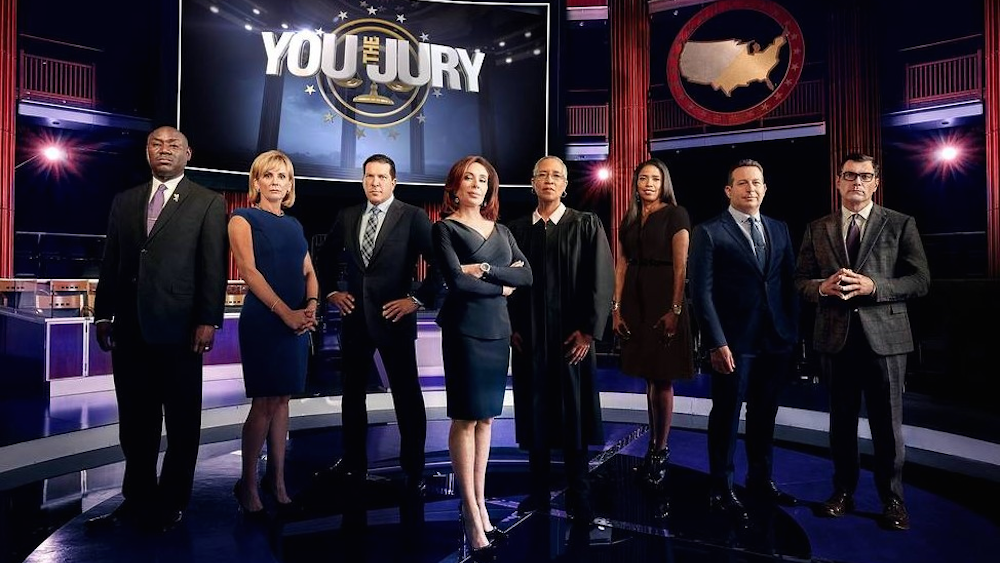5 Reasons Fox’s Controversial New Court Show Is Inaccurate

Fox recently premiered a courtroom show, You the Jury, in which top attorneys argue ripped-from-the-headlines civil cases (civil murder cases included) - then let America hand down a verdict. The show, hosted by Fox News's Jeanine Pirro, has drawn criticism in part for suggesting that a mass audience is somehow better equipped to deliberate on a case than the traditional, non-populist "jury of your peers." Goldie Schon, an L.A.-based lawyer, legal expert, and commentator, is one such critic. “I think this show will mirror much of what we have for reality television - that being that it's not really reality,” she says. Here's her verdict on the show.
1. You’re not watching a real court case. "It's a reenactment of a court case. The Fox TV people have reviewed a multitude of cases and said, ‘Oh, this one has a juicy plot to it, we'll use that one. We're going to reenact this one with our actors, and we're going to take the juiciest parts from these piles and piles and piles of pages of documents that we have read, and we are going to condense that into our show.’”
2. The recreations are exaggerated. “Glamorizing a courtroom is great for entertainment. However, much of the sensationalism that we see for entertainment value is not allowed or appropriate in an actual courtroom. For example, outbursts by any of the parties would never be allowed. It might actually happen, but as soon as somebody were to be sensational or yell or flail their hands or point their finger at the other party, a bailiff or the judge themselves would admonish that person and tell them if they did it again, they would either be escorted out of the courtroom or be sanctioned in a financial manner for behaving inappropriately.”
3. Cases last hours. “The reality of the courtroom is really very boring, [so] what the television entertainment version does is cherry pick seconds and moments that happen in the courtroom, and edit it down that so that the entirety of the television show is [less than an hour] of what would possibly be five hours of court time.”
4. Real-life juries are carefully chosen for a reason. “Some cases don’t have jurors, number one. For example, family law is not [tried] in front of a jury; we want a judge to make the decision because you have to be so well-versed. Now, for things such as a car accident or a criminal matter [like murder], where you do have a jury, what needs to be understood is those jurors are picked after a lengthy process called voir dire, which is a process of asking multiple amounts of questions to various potential jurors in order to see whether or not they are able to make a decision that is not biased or prejudiced or because of something they have experienced themselves. They [have to be] able to make a decision from the evidence and only the evidence that is placed before them in the case. And that process is required for the very reason that you don’t want some random person making a decision [based on something like], 'Oh, well my friend had that happen and so therefore that has to be the same.'"
5. Instant gratification isn’t something we should seek from our legal system. “The idea that we could have instant gratification when making a decision on a case ... it's not that fast. Deliberation has to happen - talking, communicating, meetings, [jurors] talking amongst themselves about what the decision should be. We're in this mode of instant gratification, whether it is through Twitter or Snapchat, getting what we want right away at the tip of our fingers. And there are just some things in our life that require far more time and far more thought, and we shouldn’t insist on instant gratification on those things. You really want people to think it through.”
Follow Darla on Twitter.
You Might Also Like

